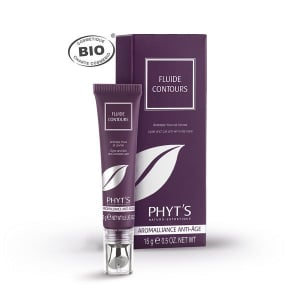Silicon Vs. Silicone – Which one is best for your skin?
You have probably found one of these two compounds listed as an active ingredient in skin and hair products; both are beneficial and have a wide range of applications, but one might hamper your skin health in the long run. Which one?
But first, what is silicon and silicone? Are they even different?
What exactly is silicon?
Silicon dioxide, also known as silica, is a naturally found mineral in both the Earth’s crust and our bodies. It is made up of silicon and oxygen.
Silica can take on many forms and uses. Not only is it present in the body and many food sources, but it is also found in rocks and used in a variety of manufacturing and industrial areas.
Silica can be derived from bamboo, which is the mineral’s most abundant plant-based source. It is also available in a variety of plants and foods, albeit in smaller amounts.
This trace mineral works to maintain healthy connective tissue production in the body—influencing the health of everything from bones and tendons to hair and skin. Silica is one of the most significant collagen components necessary for smooth, solid, and supple connective tissue. Silica helps rebuild connective tissue after collagen has been damaged.
It also helps maintain adequate mineral levels in the body, which also affects hormone balance. And, it helps your body absorb calcium, leading to healthier and stronger bones.
When we are young, our bodies contain higher amounts of silica, but this mineral is reduced as we age. The older we get, the lower the amount of silica our bodies can retain, which is why supplementation may be necessary.
How does it help the skin?
- Silica aids skin elasticity. That is why skincare products use it to strengthen, tighten, and tone the skin. If you’re deficient in elastin, silica will help combat skin sagging.
- Silica is a natural absorbent that removes bacteria and dirt from your skin. It doesn’t matter if you have a tough stain or debris; this mineral will absorb the dirt that clogs your pores and thoroughly clean your skin.
- Silica does beyond cleansing dirt; it also exfoliates. Thanks to the abrasive nature, this element can give your body a thorough and gentle scrub. With that, you will remove dead cells and come out with dewy and young skin.
That said, let’s talk about silicone before we highlight which of the two is best for skincare.
What you should know about Silicone
The first thing you should know about silicone is its source. Unlike silicon, it does not exist naturally. Instead, it is a product of scientific processes.
While silicon combines with oxygen, silicone is a combination of much more elements. How so?
For specifics, silicone is a product of carbon, hydrogen, oxygen, and silicon. For that reason, silicone is distinct and different from its natural alternatives.
In any case, silicone is equally beneficial. It is used in the medical fields for surgery and in construction niches for adhesives and insulation materials.
Furthermore, silicone is also popular in the beauty and care industry. For a start, it is suitable for hair and as a result, silicone is the mainstay in conditioners, shampoos, shower gels, and other hair products. But that’s not all.
Silicone also prevents sweat when used in body care products. Plus, it makes products feel silky, and it enhances their fragrance. In summary, it is an effective ingredient of antiperspirants and deodorants.
So, what do you think? Don’t you find it confusing that both silicon and silicone helps the skin?
Which Should You Use For Your Skin? Silicon Or Silicone?
Short answer: pick silicon (silica) over silicone since it is natural, sustainable with no residual effects.
But here is a longer answer:
Pick Silicon because it is safe and natural.
These are a few points that we don’t really like about silicone:
– Silicone, primarily dimethicone, adds layers over your skin and that interferes with your natural body processes. Specifically, you won’t sweat like you ought to because your pores have a film over them.
Silicone also catalyses the ageing process. When you don’t sweat and shed old cells, your wrinkles will become more apparent, and the lines will spread sooner than normal. It might also lead to increased breakouts.
Silicone promotes irritations. The antiperspirant layers on your skin lock your sweat as well as bacteria and other debris. In the long run, all those imprisoned dirt will escalate into skin irritations.
Silicone is a synthetic ingredient. As a result, it won’t decay naturally. Besides its energy-intense production, the waste can cause all sorts of environmental issues.
Overall, silicone is a beneficial compound, but just not for your skin. While it is necessary to manufacture medical apparatus like prosthetics, silicone might spell doom for your skincare routines.
Our advice for you is to avoid silicone in your beauty products. Unfortunately, you might not even see “silicone” in the list of ingredients of your creams and lotions. If that case, look out for these tags:
- Amodimethicone
- Cyclomethicone
- Cyclopentasiloxane
- Dimethicone
- Dimethiconol
- Methicone
- Polydimethylsiloxane
- Trimethicone
- Trimethylsilylamodimethicone
Once you find the listed elements on your skincare products, know that it contains silicone.
We equally understand that the “list of silicone synonyms” is quite long. In that case, look out for suffixes such as “cone,” “conol,” and “siloxane.”
Verdict
Skincare products containing silica are the perfect fit for your skin because it is natural and sustainable.
Silica contained in Phyt’s Fluide Contour for the eye and lip contours will help rebuild and keep tissues toned. Daily application of Fluide Contour will provide a lifting and tightening effect on the skin surrounding the eyes and the lips while keeping it hydrated and healthy, giving it more bounce and elasticity.







